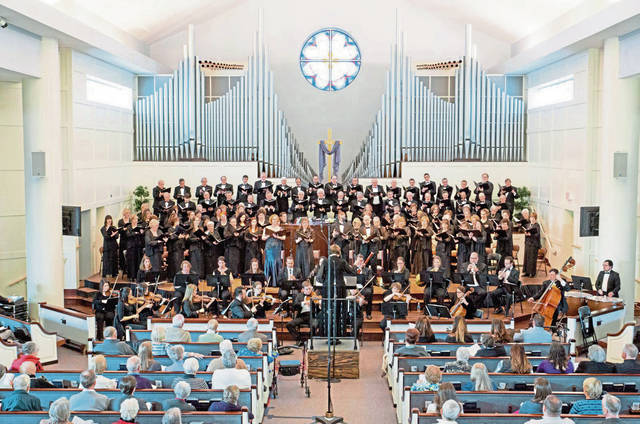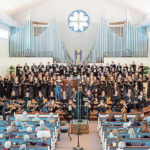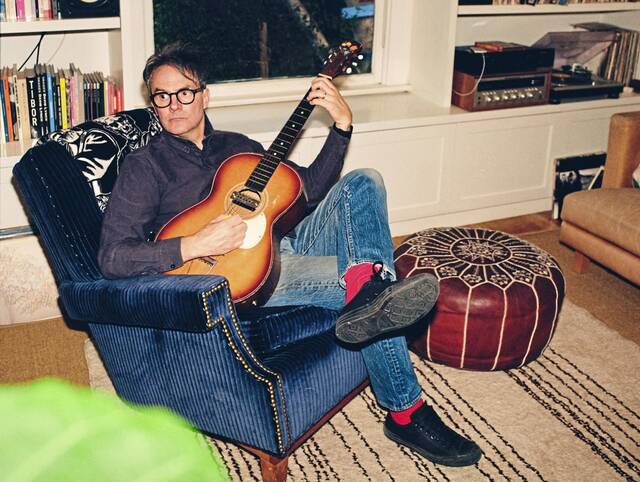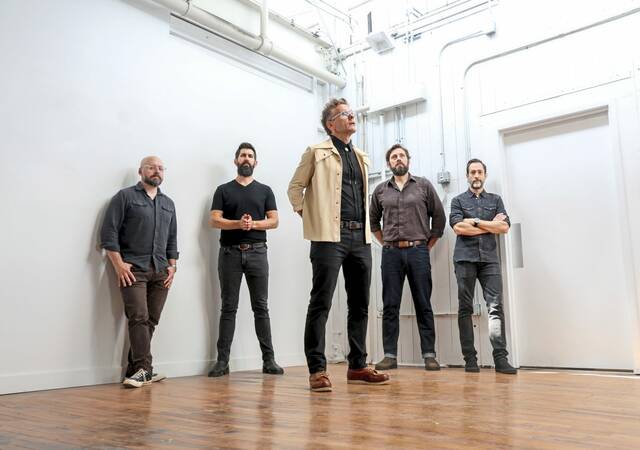“Fun” isn’t a word often used to describe classical music, but then Carl Orff’s “Carmina Burana” isn’t your typical piece of classical music.
The exuberant nature of the work made it a logical choice for the Pittsburgh Concert Chorale to perform as part of its 35th anniversary celebration, says music director Susan Medley.
“I’ve loved it forever, and I wanted to do some big, splashy work for the anniversary,” she says. “I remember the first time I heard it. It’s primitive, it’s powerful, it’s energetic. It just makes you feel good.”
The chorale will present Orff’s masterwork on Feb. 28 in Ingomar United Methodist Church in Franklin Park and on March 1 in the Carnegie Music Hall in Oakland.
“I knew that fans of the work would welcome the chance to hear it, and I strongly suspected that members of our audience who have never heard the entire work would love it,” Medley says. “There is a reason that ‘Carmina Burana’ has captivated audiences since 1937. It’s great music! It’s fun to perform and it’s fun to listen to.”
Medieval poetry
The scenic cantata was composed in 1935 and 1936 by German composer Carl Orff, based on 24 poems from a large medieval collection of the same name written in Latin.
The poems are attributed to wandering European students and clergy known as goliards, whose works satirized the Catholic Church. Themes include the fickleness of fortune, the fleeting nature of life, the joys of spring and the mixed pleasures and pains of drinking and lust.
Whether they know it or not, movie fans probably are familiar with the cantata’s dramatic, bombastic opening piece, “O Fortuna,” which is reprised at the end. It was heard in 1981’s “Excalibur,” as King Arthur and his knights rode to battle; in “Speed,” the 1984 bus-out-of-control movie with Keanu Reeves and Sandra Bullock; and in the intro to “Jackass: The Movie” in 2002 — to name but a few.
For all its popularity, Medley says, this will be the first time that PCC will perform “Carmina Burana” in its entirety. The group hosts an annual festival of choirs showcasing high school groups from the greater Pittsburgh area, and the repertoire includes excerpts of “Carmina.”
“We never have done the whole piece; we’ve probably done about a third of the movements,” Medley says.
Earthy and approachable
The two upcoming performances will feature Orff’s authorized arrangement for two pianos and percussion. Pianists will be PCC accompanist Bryan Sable and Ellen Fast. Percussionists will be Abby Langhorst, Nick Huneycutt, David Luidens, Zachary Mathes, Andrew Ferdig and Justin Gingrich.
The chorale will be joined by soloists, soprano Melanie Vaccari Catana, tenor William Andrews and baritone Graham Fandrei.
“I think it’s my favorite piece to sing of all that I’ve done,” says Fandrei, who is venue manager of Greer Cabaret Theater and the Backstage Bar at Theater Square for the Pittsburgh Cultural Trust. “It’s one of the pieces that orchestras just love to do, knowing that they’ll get a great turnout. Everyone can relate to the poetry; it’s earthy and approachable — and everyone recognizes ‘O Fortuna.’
“It’s extremely challenging and vocally rewarding to sing,” he says. “The proclamations are almost like yelling, and then other parts are overtly sensitive. It really makes you stretch yourself as a soloist.”











